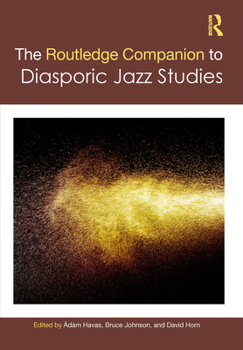The Routledge Companion to Diasporic Jazz Studies
The Routledge Companion to Diasporic Jazz Studies recognizes the proliferation of jazz as global music in the 21st century. It illustrates the multi-vocality of contemporary jazz studies, combining local narratives, global histories, and cultural criticism. It rests on the argument that diasporic jazz is not a passive, second-hand reflection of music originating in the US, but possesses its own integrity, vitality, and distinctive range of identities. This companion reveals the contradictions of cultural globalization from which diasporic jazz cultures emerge, through 45 chapters within seven thematic parts:
What is Diasporic Jazz? Histories and Counter-Narratives Making, Disseminating, and Consuming Diasporic Jazz Culture, Politics, and Ideology Communities and Distinctions Presenting and Representing Diasporic Jazz Challenges and New DirectionsThe Routledge Companion to Diasporic Jazz Studies traces how cultural dynamics related to "race", coloniality, gender, and politics traverse and shape jazz. Employing a cross section of approaches to the study of diasporic jazz as eloquently showcased by the entries, this book seeks to challenge the dominant jazz narratives through championing a more all-encompassing, multi-paradigmatic alternative. Bringing together contributions from authors all over the world, this volume is a vital resource for scholars of jazz, as well as professionals in the music industries and those interested in learning about the cultural and historical origins of jazz.





